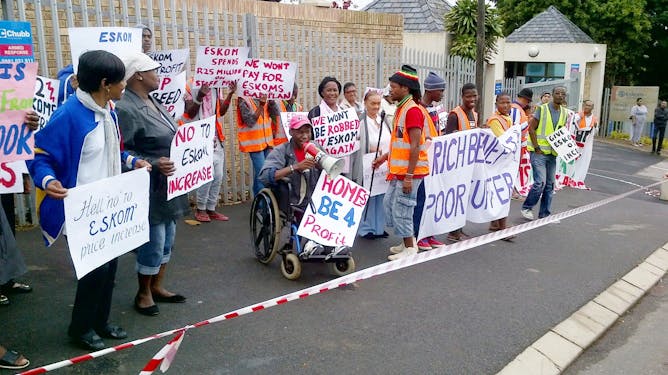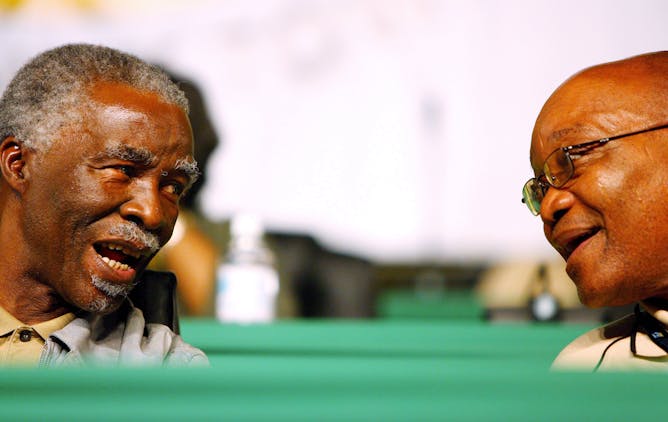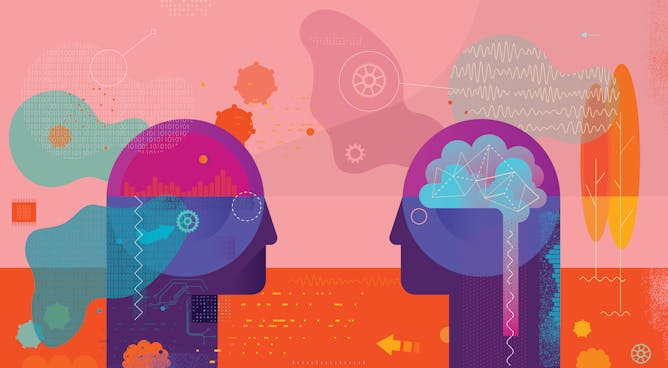|
Thirty years into South Africa’s democracy, the liberation movement’s promise of electricity for all has not been realised. Instead, the country has experienced 17 years of scheduled power cuts that have damaged the economy. Coal-fired power stations are still running, emitting greenhouse gases. And the government’s latest electricity plan relies heavily on gas – a resource that South Africa doesn’t have. The only way forward, says transitions expert Mark Swilling, is for the South African government to immediately set up solar and wind power projects on a massive scale.
When Thabo Mbeki took over from Nelson Mandela as South Africa’s president in 1999, the formerly oppressed majority black population was anxious to see the economic benefits of freedom. Mbeki’s nine years at the helm were marked by relatively high economic growth. Things started to change, however, following the ascension to power in 2009 of Jacob Zuma. In this second episode of a three-part podcast series, What happened to Nelson Mandela’s South Africa, Michael Sachs and Mashupye Maserumule reflect on Mbeki’s economic policies and Zuma’s tenure.
|

Mark Swilling, Stellenbosch University
After 30 years of democracy, South Africa is in a deep electricity crisis which can only be solved if the government moves speedily to set up solar and wind plants.
|

Gemma Ware, The Conversation; Thabo Leshilo, The Conversation
The second episode of What happened to Nelson Mandela’s South Africa?, a three-part podcast series on The Conversation Weekly. Featuring interviews with Mashupye Maserumule and Michael Sachs.
|

Niccolo Francesco Meriggi, University of Oxford
For villagers in remote areas in Sierra Leone it takes a lot of time and money to get to a clinic. So the COVID-19 vaccine came to the people.
|

Mary Carman, University of the Witwatersrand; Uwe Peters, Utrecht University
Many existing explainable artificial intelligence systems produce explanations that are tailored to individualist, typically western, populations.
|
From our international editions
|
-
Stefan Wolff, University of Birmingham; Tetyana Malyarenko, National University Odesa Law Academy
Russia is making steady territorial gains in advance of a possible spring offensive. Without western aid Ukraine has few air defences left.
-
Kristian Coates Ulrichsen, Rice University
The small Gulf state has hosted high-level Western and Iranian delegations, passing messages between them.
-
Fabian Klenner, University of Washington
Saturn’s moon Enceladus has geysers shooting tiny grains of ice into space. These grains could hold traces of life − but researchers need the right tools to tell.
-
Flavio Macau, Edith Cowan University
A spike in oil prices as a result of escalating Middle East tensions would not immediately affect Australia – but precautionary measures should be taken.
-
Dean Lomax, University of Manchester
Ichthyosaurs were the last giant reptiles to rule our oceans.
|
|